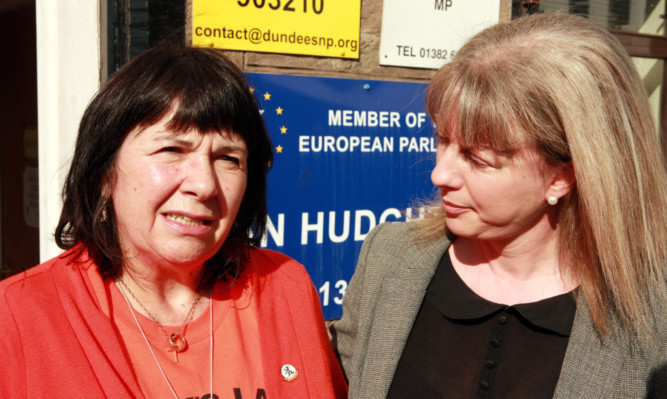Courier readers will be familiar with the campaign for the introduction of Frank’s Law.
Bravely spearheaded by the widow of Dundee Utd legend Frank Kopel, it calls for dementia patients under the age of 65 to be afforded the same free personal care as sufferers of the disease who are above that age.
Mrs Kopel watched as her husband was diagnosed with Alzheimer’s aged just 59.
It would have been doubly heartbreaking for her; not only did the merciless illness strike at an unusually young age but because the system is designed on the assumption all dementia patients are elderly, the family missed out on care and support they really ought to have received.
The Scottish Conservatives are behind the campaign and are sympathetic to Mrs Kopel’s recent verdict that the Scottish Government simply has not moved fast enough on this.
Her husband was there at Holyrood’s petitions committee when this all started but sadly 18 months after his death, we haven’t moved forward sufficiently.
And the longer it takes to address this anomaly, the greater the number of patients and carers there will be who suffer as a result.
What’s more, the problem is getting worse.
This newspaper revealed two weeks ago that the number of under-65s in Scotland being medicated for dementia is now at a record high.
Last year, 777 people were given drugs to treat the illness, a quarter more than six years ago when just 596 people began treatment before hitting retirement age.
That may be a minority of the overall dementia picture in Scotland but it’s certainly still not to be dismissed.
And, while we feel ministers should have already taken action on this, we appreciate it’s not an easy decision to make. After all, once this change was made for dementia patients, where would that leave people suffering from other terminal illnesses or identical age-related disadvantages?
The question emerges where would the line be drawn? The public purse would never be able to afford extending free personal care to everyone, so a threshold would have to be put in place somewhere. No matter where that line was, someone already dealt a bad hand by life would feel like they were missing out.
However, that’s what politics is about making tough decisions and using scarce resources appropriately.
There’s no doubt in my mind Mrs Kopel has a strong case anyone following her crusade would no doubt agree and it’s something that should have been resolved long before now.
There has been absolutely nothing to stop successive health secretaries closing this loophole for dementia patients, then looking at the overall picture once that had been done.
In fact, helping patients under the age of 65, like Frank, could have acted as a useful pilot to see how the scheme could be applied more widely.
Instead, the SNP dithered and rightly incurred the wrath of Mrs Kopel.
While NHS and local authority budgets are not bottomless pits the UK Government has pledged an additional £8 billion a year for the health service in England by 2020.
Thanks to Barnett Consequentials, that means £800 million will come north of the border and perhaps some of that could be set aside for this very issue.
Either way, it’s imperative the SNP promises to pass on every penny of this extra NHS money directly into the health service and not divert it to pet projects or financing a referendum re-run.
Another way of helping to fund frontline care would be to reintroduce prescription charges for those who can well afford it. That would immediately free up tens of millions of pounds for the NHS, ensuring those who needed help the most would receive it.
The Scottish Government doesn’t have to wait for these powers and it can’t say it doesn’t have access to the correct financial levers to make these changes a reality.
These are things the Scottish Parliament could do now to make a tangible difference to people’s lives up and down the country.
Health secretary Shona Robison has said a final decision will be made on this next year.
For the sake of families like the Kopels, I hope she does so before the Scottish elections in May.
